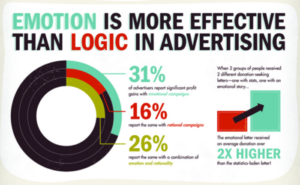Introduction
It is an obvious fact that In an era where our lives are increasingly digital, the way we verify our identities online is more than ever. Let’s understand that Digital identity verification is the process of showing that you are who you say you are online. It also validates everything such as logging into your email as well as conducting financial transactions. But still, we have seen that with the increase in cyber threats old ways od of identity verification are not enough at all.
Now here comes a a new way that helps you to change the way you verify identities which is blockchain technology. The decentralized and secure nature gives a new way to protect our digital identities. You need to understand how blockchain can improve digital identity verification and it is most important for anyone concerned about online security and privacy.
Current Challenges in Digital Identity Verification
Let me tell you a fact digital identity verification is filled with challenges. One of the biggest issues you may face is identity theft and fraud, which has become a major problem worldwide. The main target areas of hackers are Centralized databases, where most identity information is stored. When these databases are backed then the personal information of millions can be exposed.
Also, knowing that the privacy concerns related to these centralized systems cannot be overlooked. Users usually have little control over their data. Due to this little control comes threats of access and misuse of data by unauthorized parties. You can see now that These vulnerabilities highlight the urgent need for a more secure and private system of identity verification.
How Blockchain Addresses These Challenges
Blockchain technology gives solutions to the problems that are affecting the Threaful current digital identity verification systems. The decentralized nature shows that there is no single point of failure which means that data is stored on a network of nodes. With All these factors it is very hard for hackers to compromise.
You must also know that blockchain records are fixed which means once data is recorded then it cannot be altered or tampered with. This guarantees that identity information is true and trustworthy. Also, the best thing is blockchain employs advanced cryptographic techniques to improve and secure privacy. This allows users to have greater control over their personal information.
Mechanisms of Blockchain-Based Digital Identity Verification
Now we will discuss many mechanisms that are used in blockchain-based digital identity verification.
- The first process is Decentralized Identifiers (DIDs). These are a new type of identifier that is created, owned, and controlled by the individual instead of a central authority. This decentralization is the foundation of blockchain’s security advantages.
- The second most important aspect is Verifiable credentials. And what are they? Well, These are digital statements that can be cryptographically verified to prove the authenticity of an identity claim. Keep in mind that Smart contracts, self-executing contracts with the terms directly written into code automate and enforce the verification processes. This in return guarantees that they are both efficient and reliable.
Benefits of Using Blockchain for Digital Identity Verification
There are many benefits of using blockchain for digital identity verification.
- One of the most prominent advantages is increased security and a huge reduction in fraud. In my opinion, as blockchain is decentralized and its records are fixed, now it is much harder for hackers to change identity information or steal personal data.
- Another benefit I have seen is its Improved user privacy and control over personal data. With the help of blockchain now people can manage their identity information and choose what to share and with whom. And what we have learned is that This level of control is not possible with traditional systems but with blockchain.
- You will find another benefit of blockchain which is it can make identity verification processes more efficient and less expensive. When you are automating verification with smart contracts and decreasing the need for moderators then blockchain makes the process easier. It also decreases the costs related to old identity verification methods.
Applications and Case Studies
You may be thinking what is the main theory behind blockchain-based digital identity verification and how does it work in the real world? The answer is many advanced systems are already showing the power of this technology. I will give you an example of platforms like uPort and Sovrin. These are using blockchain to give users control over their digital identities. It gives secure and verifiable interactions without depending on centralized authorities.
- When we look into the financial sector some companies like HSBC are exploring blockchain for KYC (Know Your Customer) processes. The best thing is it reduces fraud and makes it easier for customer onboarding.
- And when we talk about blockchain technology In healthcare many organizations are using blockchain to secure patient records. They are also making data integrity and privacy.
- And now Governments are also using this technology. Estonia’s digital identity program is a common example of how blockchain can improve public services. It also gives citizens with secure and also giving digital access to a wide range of government services.
Challenges and Limitations
Blockchain is giving many benefits but we have to understand the fact that blockchain-based digital identity verification is not without its challenges.
- The first challenge is Scalability which is one of the common hurdles. The current blockchain networks can struggle to handle the huge number of transactions needed for widespread identity verification.
- Another challenge we face is Regulatory and legal considerations. Different countries have varying laws regarding data privacy and blockchain technology. In return making it difficult to implement a standardized solution globally. Also, know that there are concerns about how existing regulations apply to the decentralized nature of blockchain.
- The last challenge we face is Technology adoption and integration are other critical issues. You must know that Transitioning from traditional systems to blockchain needs huge investment and changes in infrastructure. Organizations must also make sure that their staff is trained to use and manage these new systems effectively.
Conclusion
We have concluded that blockchain technology changing the process of digital identity verification. We discovered that old methods, with their centralized databases and inherent vulnerabilities, are not enough to protect our identities. We have seen a great increase in identity theft and privacy breaches which shows the need for a more robust system.
We have explored how Blockchain addresses these issues with the help of decentralizing data storage. It is also making it more secure and tamper-proof. Its immutability guarantees that once identity data is recorded, it cannot be changee. Blockchain technology is also providing a reliable and trustworthy system for verifying identities.
With the help of this blog, we also explored The introduction of Decentralized Identifiers (DIDs), verifiable credentials, and smart contracts which brings more improvement. These improvements improve security and decrease fraud as well as give individuals greater control over their data.
We have also seen the Real-world applications in finance, healthcare, and government. This shows the practical benefits of blockchain-based identity verification. we have seen the clear impact of the blockchain chain on secure KYC processes, protecting patient records and enhancing public services.
With lots of benefits, we also discovered the challenges in blockchain technology such as scalability issues, regulatory hurdles, and the need for huge adoption and integration. When we work on these challenges as well as realizing the full potential of blockchain in digital identity verification.
In closing I would say that blockchain has the power to change how we verify identities online, making digital interactions safer, more efficient, and more trustworthy.
Lorem ipsum dolor sit amet, consectetur adipiscing elit. Ut elit tellus, luctus nec ullamcorper mattis, pulvinar dapibus leo.



